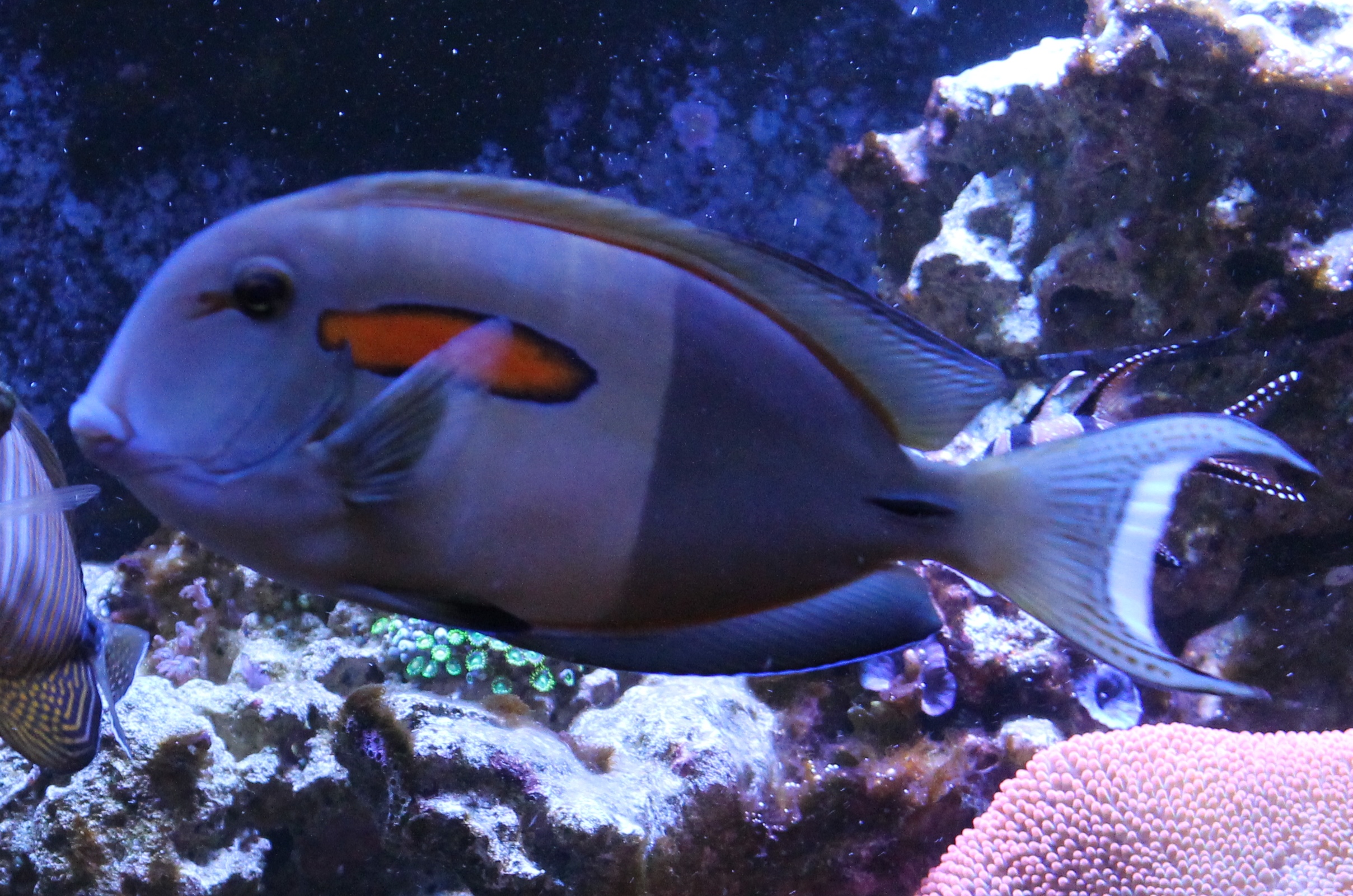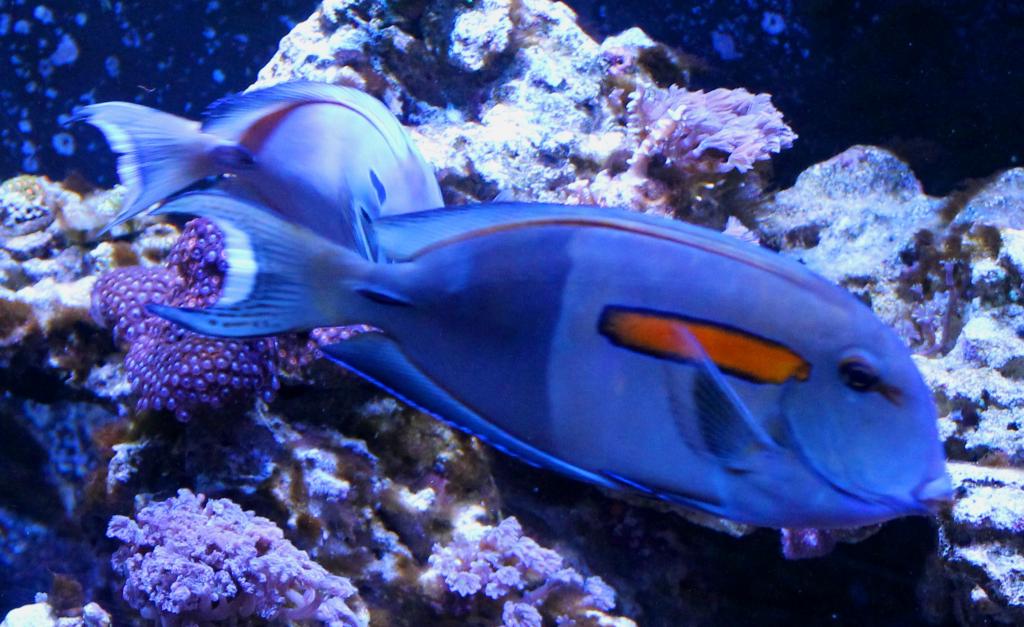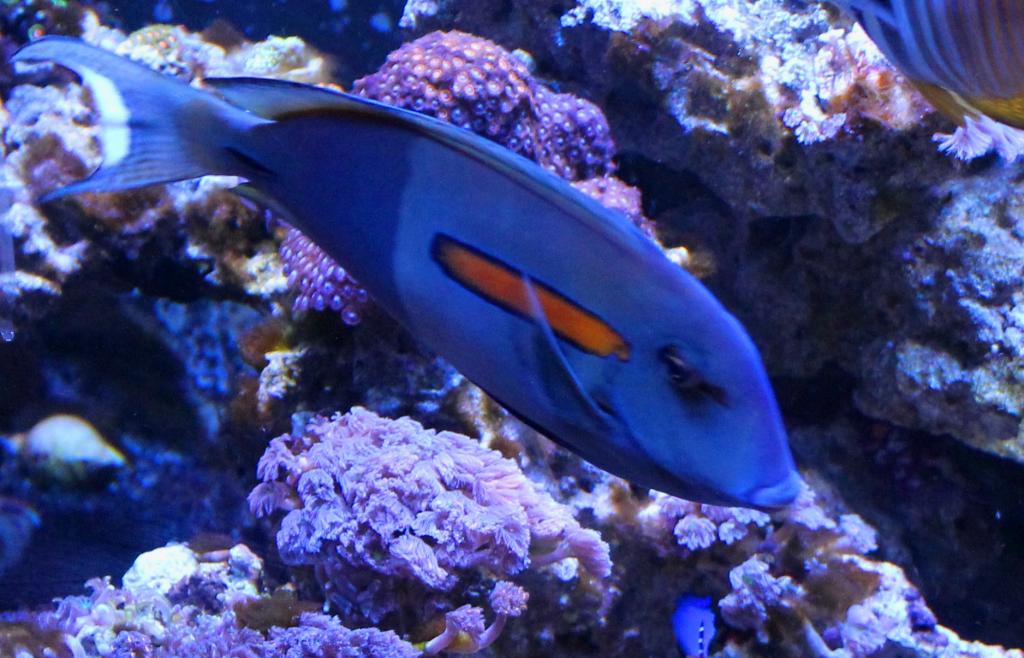
Orange Shoulder Tang
Common Name: Orange Shoulder Tang. Orange Spot Tang, Orange Epaulette Tang, Orangeband Surgeonfish
Scientific Name: Acanthurus Olivaceous
Reef Safe: Yes
Temperament: Peaceful to Semi aggressive
Care Level: Easy
Max Size: 12 inches (9 to 10 inches is more common)
Appearance:
The orange shoulder tang will have a different appearance as a juvenile. When in this stage, they will be mostly yellow in color with very subtle and faint blue highlights. The bar shaped marking on the side of their body will be a shade of orange to brown. Once they have reached adulthood, the front half of their body will turn a very light grey color while the back half will be a darker shade of grey. Their tail will develop a lyre shape to it over time as well. The bar marking on the side will turn to a vibrant orange color as well as developing a blue border around it. They will also develop blue and orange highlights around the edges of their body and fins.
The below pictures are of my orange shoulder tang. I would guess he has reached his fully grown adult size of about 10 inches as he has not grown at all in the past 3 or 4 years


Environment and Temperament
Orange shoulder tangs are the least likely to become semi-aggressive when kept with other tangs of a similar shape, size, and color to them. However, there still is a small risk they can become aggressive with other orange shoulder tangs in the same aquarium if not added at the same time and as juveniles. The orange shoulder tang is the least aggressive tang amount all of the larger bodied tangs common in the hobby. They are also a great fish for a community tank as they will peacefully co-exist with any other types of fish. They are typically reef safe when they are kept well fed.
The orange shoulder tang would to best in a tank size of 180 gallons or more. I would not suggest keeping one in an aquarium smaller than 180 gallons. The reason for that recommendation is not only based on their average adult size of around 10 inches (give or take), but on their typical behavior as well. They are a very active fish requiring a lot of open swimming space in the tank.
The orange shoulder tang will require a few suitable hiding spots so they can claim one as their own if spooked or startled. Having a good amount of live rock in your tank will not only help you to maintain good water parameters, but also provide a more natural environment for the orange shoulder tang as they like to pick at algae as it develops on your live rocks. If you are interested you can check this live rock for sale online.
Recommended water conditions / parameters:
I would refer you to the below article for the typical water conditions that orange shoulder tangs will do best in:
https://www.reefaquarium.com/2013/the-basics-of-marine-aquarium-water-parameters/
Diet
As with most tangs, the orange shoulder tang will accept almost any food you may offer it. However, they are herbivores and will require a diet consisting primarily of sea algaes with some other verities of food on occasion. A good quality flake or pellet food meant for marine herbivores is also a good option for the orange shoulder tang’s main diet.
I have read about people offering lettuce to orange shoulder tangs as a part of their diet. I would not recommend this practice. Although the orange shoulder tang will eat it, lettuce will not offer the same required nutrients as compared to marine algaes.
A reference for you consideration
https://www.reefaquarium.com/2013/responsible-fish-keeping/
I have an adult OST. For most of time he has been in my tank his coloring has been grey. He has also been very friendly and not afraid to approach me and let me touch him. Lately he has been changing coloring quite frequently, to almost white and back to grey in a matter of seconds. He also is not swimming in the open as before. Is there anything to be concerned about? Thank you.
Lighting up in color like that is typically a sign of stress. Check your water parameters. How long has this fish been in your tank ? Have added anything new lately ? What other fish do you have in the tank ?